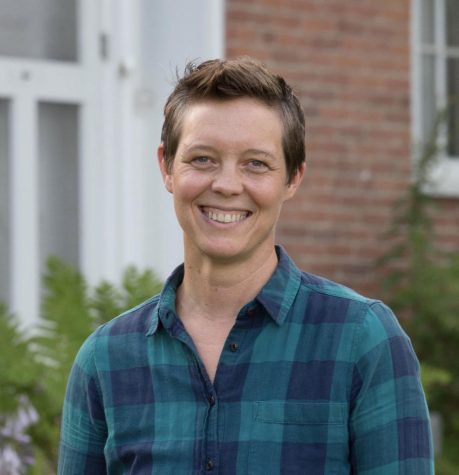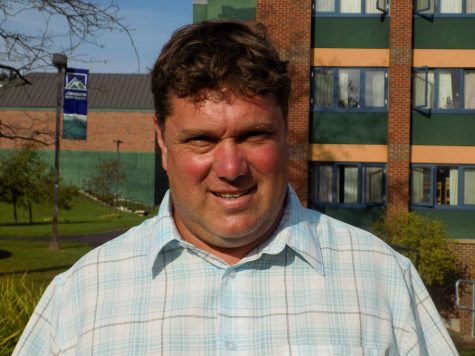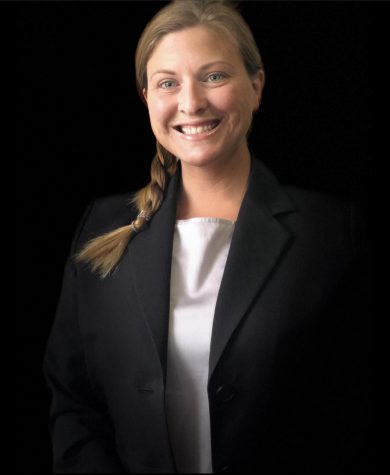Legislators answer our Q
Basement Medicine asked legislators one question: ““The financial difficulties of the Vermont State Colleges System are well known. The VSCS chancellor’s office produced a white paper in 2019 that found declining enrollment and chronic underfunding by the legislature to be the two top issues facing the system. The VSCS currently receives roughly 17 percent of its funding from the state compared to an average of 30 percent for public institutions regionally. As a legislator, would you advocate for parity of funding with the VSCS’s sister institutions in neighboring states? If so, why and how? If not, why, and what would you look for instead?””
Here are their responses.
Kate Donnally,
Democrat, running for Lamoille-2 District
To put it simply: I will do everything in my power to advocate for the sustainable future of NVU and the Vermont College System (VSCS); including increasing the percentage of funding that the VSCS receives from the state. A financially healthy future for Vermont depends on ensuring that those who are born here and those who move here can sustainably stay here. But we need people to do more than stay here; we need people who are actively involved in their communities, who bring their skills to their workplaces and their neighbors, who contribute to the diversity of our region. We cannot build and sustain active, engaged, skillful communities without NVU and the VSCS. The future vibrancy of our state depends on the future of the Vermont State College System.
That being said, there is nothing simple about ensuring the sustainable future of NVU and the state college system as a whole. The current state of the VSCS is the result of decades of budgetary decision-making that cannot be immediately and easily undone. Achieving a financially viable future for the VSCS while ensuring a healthy state budget will take tremendous work, creativity, and coalition building.
It feels important to recognize that Vermont, like so many other states, has seen the greatest reductions in spending on public colleges following recessions. The state of Vermont provided over 30 percent of the VSCS revenue back in 2000. And then the Great Recession hit; devastating public funding for higher education in Vermont and across the country. Today we sit on the verge of another financial crisis. It is essential that we do not continue this historical trend of de-prioritizing public education in moments of financial hardship. We must invest in our future and prioritize VSCS funding during this time.
But we can’t just shuffle money around. We can’t simply pull an additional $30 million a year out of the state budget hat. We must look into new revenue streams that do not put further stress on property taxes. We must look to our fantastic resource in the Vermont Student Assistance Corporation and find creative ways to leverage VSAC funding to keep Vermont students in-state for their higher education, such as debt forgiveness for Vermont students who participate in and complete VSCS programming.
Finally, money is not the only thing that is needed to ensure a solid future for the VSCS. The events of the past few years, including the threat to close campuses, has created mistrust and tension among every group involved in the VSCS from students, staff, faculty, and administrators up to the board of trustees. In order to chart an effective path forward we must build a healthy leadership coalition that represents all stake-holders within the state college system. This leadership coalition must center trust, transparency, equity, and equal advocacy for all VSCS campuses. My years as a social worker, working with state funded programs has taught me that money alone cannot solve complex human challenges. You must have strong, representative leadership working together towards a common goal.
Ensuring a sustainable and thriving future for NVU and the VSCS will take hard work, creativity, and tremendous coalition building skills. As a social worker, therapist, and community organizer these are skills that I have spent my life developing. I have the skill set that will be needed to ensure a bright future for the state college system and our communities as a whole.”
Dan Noyes,
Democrat, incumbent Lamoille-2 District
“Thank you for the opportunity to address this important issue. As a 1989 graduate, with a BS in Environmental Science from NVU Johnson, I have a keen interest in making sure the State Colleges System is strong and financially stable for years to come. The impact it has on the community where I live and serve as a State Representative is invaluable.
Over the past 4 years I have been a constant voice advocating for NVU in Montpelier. In fact, during the last legislative session Representative Hill and I were able to secure a $3M increase to the base funding of the Vermont State Colleges System. Though this was clearly was not enough, it was far better than yet another disappointing year of level or decreased funding. I will continue to advocate not only for increases in funding for NVU.
Recently I voted in favor of the FY21 budget that was passed by the House. In this budget the Vermont State College System saw a substantial increase in funding by utilizing federal funds to offset state general funds that typically go to the Department of Public Service and to the Department of Health. This shift allowed the Appropriations Committee to allocate an additional $23.8M in funding to VSCS. This brings the total allocation to the Vermont State College system to $98,430,000. (Collectively higher education in VT saw a $210 million investment in this budget).
I caution that this level of funding will be hard to sustain in FY22 as revenue projections are predicted to see additional pressures from an economy in crisis from COVID. However I feel that my network of relationships with other Representatives will be helpful in making sure our state colleges system stays on firm ground. There are 150 Representatives in the Vermont House. Individually we are all but powerless. However, by building relationships we can get things done. I feel confident we will make it through the financially unsettling times.
We all know that colleges are struggling throughout the country and the current health crisis is not helping our situation. I believe that the state colleges system needs to continue to find a balance of offering a liberal arts education and a strong career-oriented plan of study, in order to stay competitive into the future.
Another idea I’m pursuing is the possibility of shifting the responsibility of building maintenance outside of the state college system to state government’s Building and General Services Department, which takes care of other state-owned properties. This will mean colleges will not have to pit building upkeep against educational programs in the budgeting process. Consistent building maintenance also enhances our ability to market our state colleges to students across New England. No one wants to come to beautiful Johnson, Vermont, only to live in a run-down dorm room.
We definitely have work to do to build and maintain a strong state colleges system. I believe my ability to partner and think creatively will keep NVU in Johnson for years to come. Please feel free to reach out to me with your thoughts or concerns. I look forward to the conversation.”
Ferron Wambold,
Republican, running for Lamoille-3 District
“As the proud graduate of a public college, I understand the importance of public colleges. If elected I will work to ensure that VSCS is funded equally to our neighboring states. We are one of the lowest states at funding our higher education – which explains a good portion of the attrition that our systems face. While advocating for funding, I will encourage the state systems to understand the other issues related to the loss of students to other institutions and low graduation rates of our college systems. We have to find a way to have students start and finish their degrees in Vermont at our wonderful schools. We should also study what other states are doing to fund their state college systems and work at implementing these programs. By addressing these issues VSCS will be able to thrive and keep our communities vibrant.”
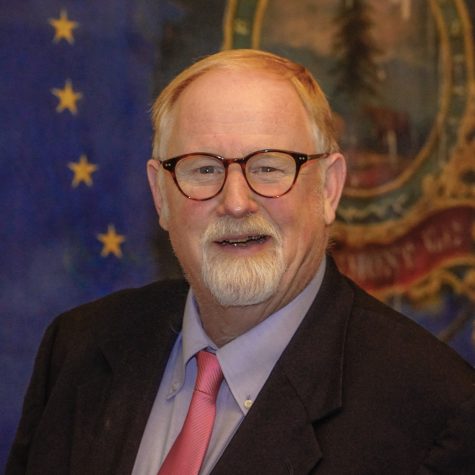
David Yacovone,
Democrat, incumbent Lamoille-Washington District
“I have supported every budget request submitted by the VSC Chancellor for the last four years. If I am re-elected I will support increasing support for our State Colleges by the same level, or more, that regional states support their colleges. If we want Vermont to thrive, to be a place where students can succeed, and attract other learners to come to Vermont we must lower tuition for students. We can only do this if we increase our investment in our State College system. The Vermont Joint Fiscal Office has reported that slightly more than 4,900 Vermont tax filers earn on average $1.1 million. Those tax payers are enjoying tax cuts in excess of $100 million annually from the Trump tax cuts that were passed in 2017. By adjusting Vermont’s income tax rates on these most wealthy Vermonters we can capture some of these federal tax savings and invest them in Vermont and make college more affordable for Vermonters pursuing a higher education. We need bold leadership to save our State Colleges, and in so doing preserve a path forward for Vermont.”
Avram Patt,
Democrat, incumbent Lamoille-Washington District
“Vermont not only contributes a smaller percent towards higher education than our neighboring states, but ranks very poorly nationally as well. I would advocate for parity with our neighboring states. Getting there will mean raising revenue as well as continued review of costs. The VSCS merits that effort. Realistically, achieving parity is not likely to happen all at once, but we need to set a course that takes meaningful steps, so that we reach the goal in the foreseeable future.”
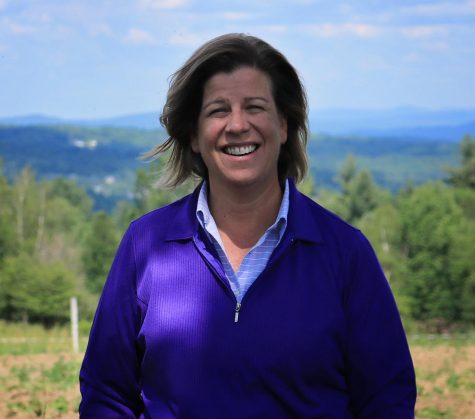
Heidi Scheuermann,
Republican, incumbent Lamoille-1 District
“As a native Vermonter and vigorous advocate for educational opportunities and excellence, I am a strong supporter of the Vermont State College system. The system itself with its individual institutions throughout the state is a critical avenue for Vermont students, especially, to have access to higher education opportunities. That said, the system is in trouble, both in terms of enrollment and in terms of funding. I am committed to doing all we can to ensure the sustainability and success of the Vermont State College system, so very much support the efforts now at restructuring the system so that we can have continued success. With regard to the woeful funding for VSC from the State, I am certainly open to all possible solutions that are on the table. That said, I will judge the proposals with the cautious eye of fiscal responsibility for our Vermont families, communities, and state as a whole.”
Shayne Spence,
Republican, running for Lamoille-2 District
“It is a bit of an understatement to just say the financial difficulties of the Vermont State Colleges System are well-known. Even before the Chancellor’s report in 2019, and the terrible events of this past April, there had been very regular alarm bells from the VSCS about the chronic underfunding issue, an issue that has been progressively worse and worse as the years have passed. I would fight with everything in me to reverse this trend, and I would make the case to my fellow Republicans in the House that the state colleges are an investment well worth making. The economic impacts of these colleges are immeasurable, but one measure places Northern Vermont University’s economic impact to be over 10X what the state puts in, and that’s with our current pathetic 17 percent funding level. Imagine what the system could accomplish if it were properly funded at 30 percent, or higher.
So for the short answer, yes, I would support doubling the state funding for the Vermont State Colleges System, and working with the colleges to create a more integrative educational experience, incorporating trades, expanded medical programs, and working lands programs, so the VSCS can effectively fill a stronger workforce development role while also protecting the core liberal arts experience.”


